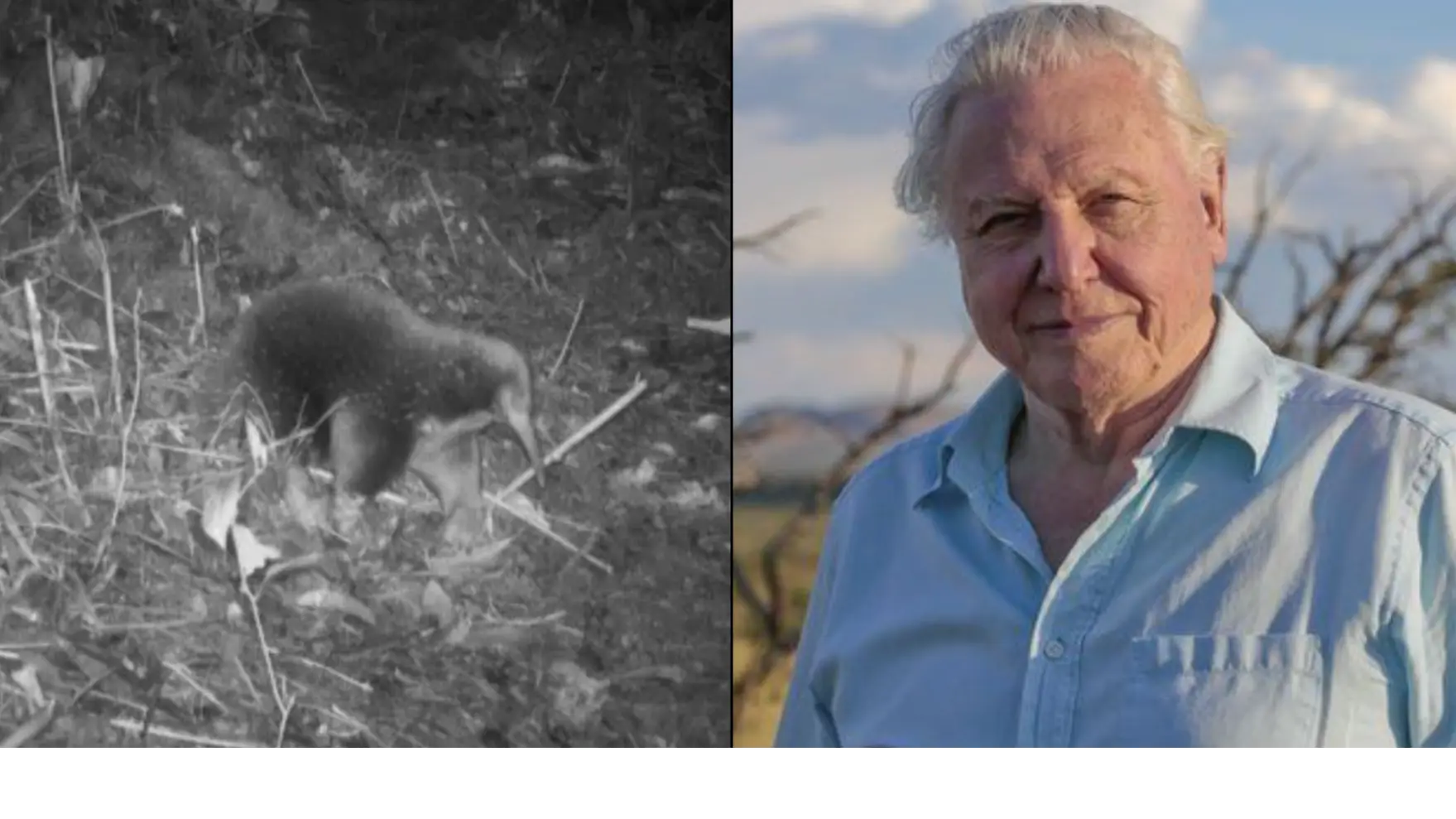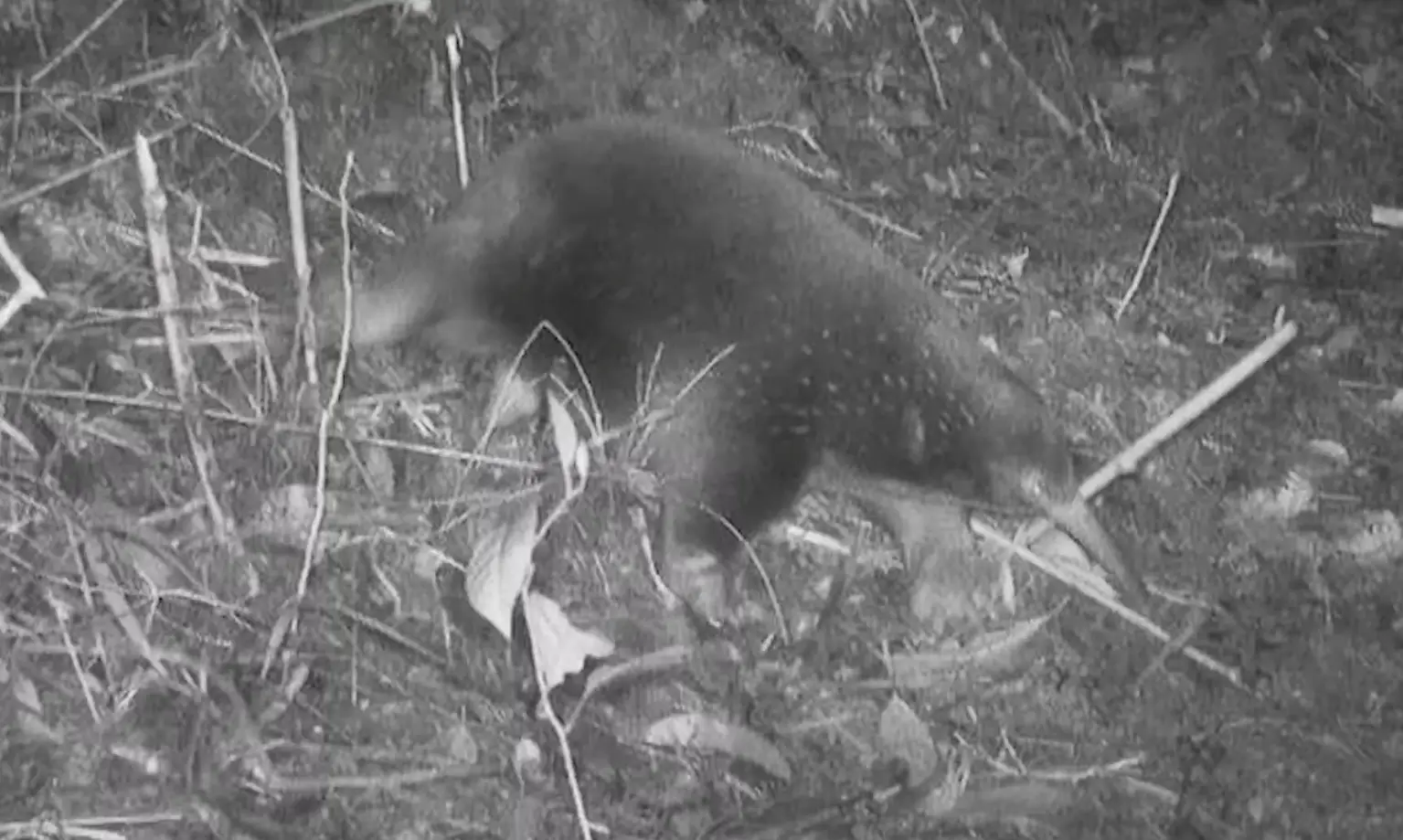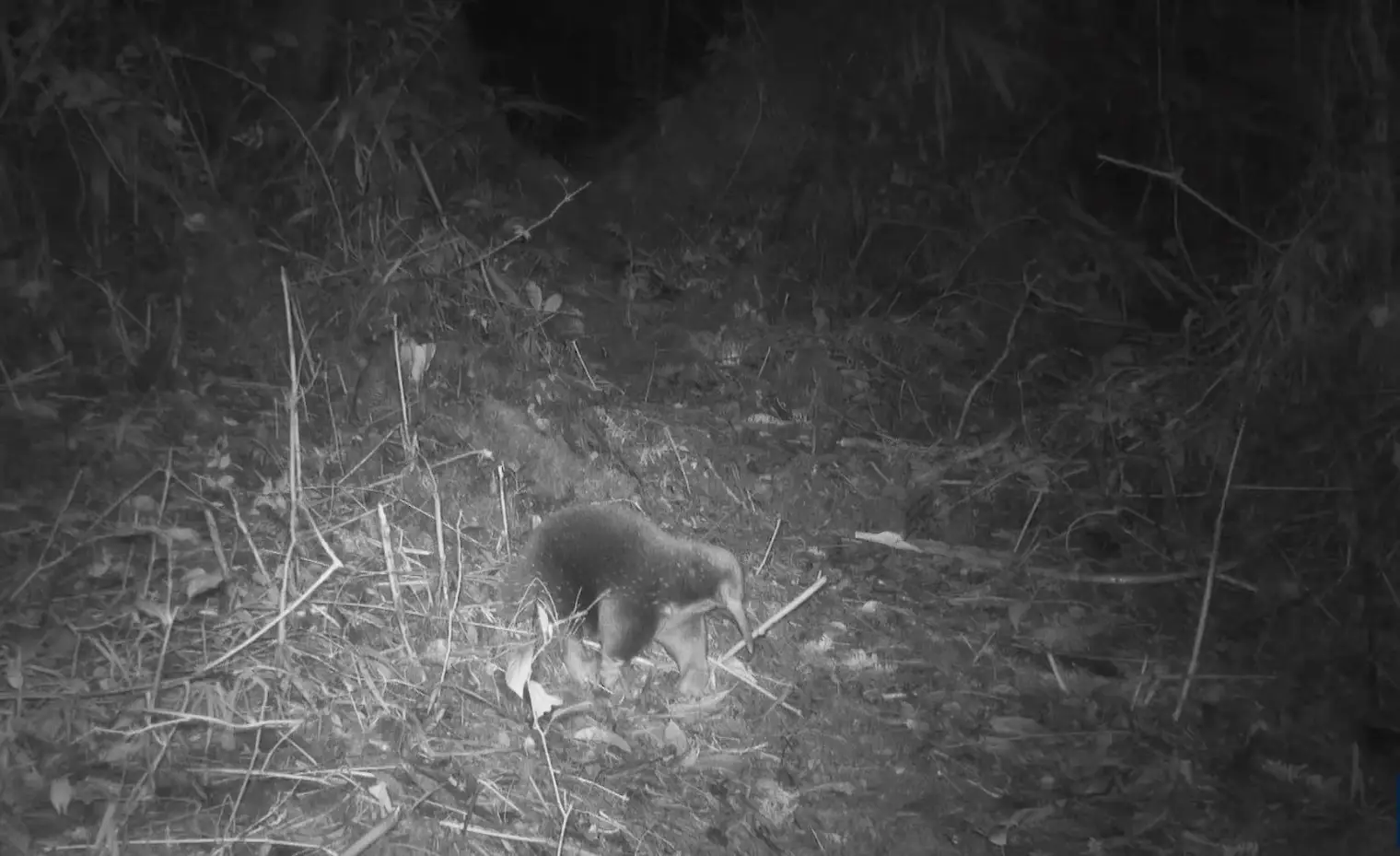
Sir David Attenborough's egg-laying namesake that was long-thought to be extinct has stunned scientists after resurfacing.
The long-lost mammal miraculously turned up in a tropical forest in Indonesia after more than 60 years since it was last recorded.
Attenborough's long-beaked echidna - named after the biologist and national treasure - was caught on camera for the first time as it made its way through the Cyclops Mountains.
Take a look here:
Advert
The unique mammal was last seen by scientists in 1961, but seemed to now fancy some screen time.
Trail cameras set up by Oxford University boffins managed to capture the creature wading through the leafy forest floor.
On the last day of a four-week expedition, the researchers incredibly got hard evidence to prove the long-beaked echidna isn't extinct.
It is one of the only egg-laying mammals that still walks the Earth, but is hard to pin down as they are hide and seek champions.
Echidnas - often dubbed 'living fossils' - live in burrows, are nocturnal and known to be very shy.
They have some very extraordinary features too - as they sport both spikes and fur, curved claws and eat through a toothless beak, while males have a four-pronged penis.

"The reason it appears so unlike other mammals is because it is a member of the monotremes – an egg-laying group that separated from the rest of the mammal tree-of-life about 200 million years ago," biologist James Kempton said.
An untrained eye may mistake it for a hedgehog or an anteater - but thankfully, experts recognised it straight away.
Kempton found the incredible footage on the final memory card he had retrieved from over 80 remote cameras after descending the mountain.
He said: "There was a great sense of euphoria, and also relief having spent so long in the field with no reward until the very final day.
"I shouted out to my colleagues that were still remaining… and said 'we found it, we found it'. I ran in from my desk to the living room and hugged the guys."
The biologist said he had informed Sir David that his namesake was alive and well and that he was 'absolutely delighted' by the news.

Echidnas have the spines of a hedgehog, the snout of an anteater and the feet of the mole, according to Kempton.
Because of its 'hybrid appearance', it shares its name with another legend - but this one isn't off the telly.
In Greek mythology, Echidna is one of the most infamous monsters as she was half-woman and half-snake.
The team of international experts also managed to discover a variety of impressive new species - including beetles, spiders, scorpion, tree-dwelling shrimp and a Mayr’s honeyeater - a bird lost to science since 2008.
Despite being rocked by an earthquake, contracting malaria and a leech attaching itself to an eyeball - the researchers still managed to get the job done.
Locals from the Yongsu Sapari village helped the experts navigate the treacherous mountain terrain.
Different echidna species can be found throughout Australia and lowland New Guinea, but this one has only been recorded once before 62 years ago.
Topics: Animals, David Attenborough, Science, World News, Weird